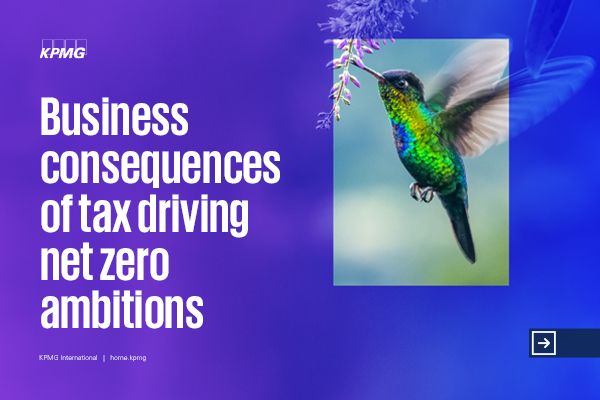Tackling climate change is a key issue. This has become more pressing than ever with the fuel price increases and growing uncertainty caused by the Russian invasion of Ukraine.
There are many questions to address:
- How fast will changes be made?
- To what extent will tax be used as a stick or a carrot?
- What impact will taxes or regulation have on business? How will these interact with each other?
This publication looks at some of the measures which governments might introduce — in particular tax related ones — and the potential impact on business.
What opportunities exist for skill development, job creation, and economic empowerment within the renewable energy sector, and how can these opportunities be maximized to promote social inclusion and equitable access to employment in Africa?

The need for local projects in the renewable energy sector underscores the importance of local involvement and support. This drives direct job creation. Moreover, investing in training programs for local communities to develop skills is crucial to meet the ongoing needs of these projects. These initiatives will also spur the growth of local industries, generating more jobs and skill development. This will also impact on traditional migratory trends which will reduce demographic pressure on major cities. Maximizing these opportunities, with a dual focus on project-specific skills and broader industrial readiness, will undoubtedly foster social inclusion and enhance equitable access to employment.

Key insights
Carbon Pricing
Carbon pricing (whether by a tax or an emissions trading system) is likely to be one of the key instruments used by many governments to address climate change.

Tax Incentives
Governments will likely also use other instruments, including incentives, regulations and targets - and different countries may rely to very differing degrees on each of these levers.

Urgency
The Russian invasion of Ukraine and the current energy crisis may initially slightly slow decarbonization and alter the pathway to net zero but is creating an even greater sense of urgency and, in the medium to long term, is likely to accelerate progress.

CBAMs
A significant increase in a country’s carbon price will likely drive concerns about carbon leakage and increase calls for carbon border adjustment mechanisms (CBAMs)

Carbon Club
CBAMs raise many issues of complexity, WTO compliance and trade distortion. Hence the suggestion by some for a “carbon club,” which could take account of the differing policy options and pathways chosen by individual countries.

What leaders in the space are saying:
Carrot versus sticks; Tax versus regulation
Governments have many levers at their disposal to influence how businesses and citizens respond to climate change. Each lever brings its own implications and knock-on effects for behaviors, the economy and society more broadly. Curious to know more? Download the report today.
Putting a price on carbon
The ability of tax costs to drive behavior is one reason why carbon pricing has been used as a key way to promote businesses transition to green energy alternatives. By putting an economic cost on the carbon emissions embedded in a product or service, businesses and consumers are incentivized to shift from fossil fuels (where historically, the total cost of environmental externalities has not been borne) toward low-carbon alternatives. Curious to know more? Download the report today.

Businesses should prepare for a multifaceted approach. It may look different across jurisdictions, as governments pull multiple levers. We expect that many will consider carbon pricing the most effective, whether through ETS programs, carbon taxes or both in combination; still, other jurisdictions are going to favor an incentive model for driving the change needed.

Grant Wardell-Johnson
Head of Global Tax Policy Group, KPMG International
The circular economy
The clean energy transition is critical, but some jurisdictions might also take measures to support the move to a circular economy more broadly. In these jurisdictions, businesses may have to develop, more circular business models based on repair, resale and retaining value; processes which can be knowledge-intensive, and take time, energy and innovative thinking to develop. Curious to know more? Download the report today.

In addition to introducing incentives, industry is, first and foremost, looking for a removal of barriers to facilitate the move from linear to circular business models.

Loek Helderman
Head of KPMG IMPACT Tax and Legal, KPMG International


